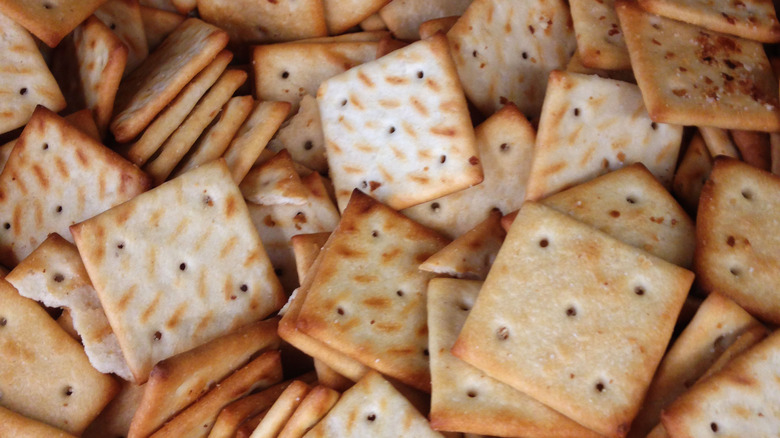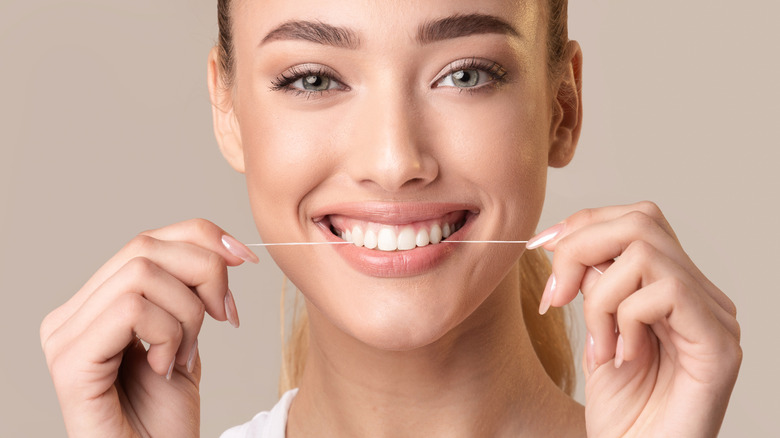The Real Reason Crackers Can Be Worse For Your Teeth Than Candy
We are all constantly being told about the dangers of eating too much sugar. Frequently disguised as part of the deliciousness of candy, sugar is a regular (and deeply enjoyable) part of many people's lives.
England's National Health Service notes that the risks of high sugar consumption include heart disease, increased blood pressure, and tooth decay (deeming the tastiness of sugary products to be far less significant than the upkeep of good health). Cookies, cakes, and soft drinks are only some of the troublesome suspects that pack diets with sugar. However, these obvious enemies of glistening health are not the only bad guys around.
As reported by Eat This, Not That!, foods similar to bread, chips, and crackers all pose a significant threat to healthy teeth because of the high quantity of starch they contain. Even though the problems associated with excessive eating of starchy foods are less publicized than those of sugar, choosing crackers as a healthier alternative to candy may not necessarily have the desired effect.
Starch contained within crackers can create an issue for teeth
Starch is a complicated beast, but (as the British Nutrition Foundation explains) it is known as being the body's best source of energy, particularly benefiting the brain and muscles. Starchy foods can also be great providers of vitamin B, fiber, and calcium. After being eaten, starch is broken down by the body into glucose (usually referred to in terms of blood sugar levels — via BBC Good Food).
According to LiveStrong, the issue can be especially prevalent with starchy and salty foods, such as chips and certain crackers. Eat That, Not This! explains that starch from these foods are converted into sugar in the mouth by saliva. Naturally occurring bacteria in the mouth devour the sugar, generating acidic by-products that damage the strength of teeth.
The research shows that while delving into a box of crackers or a bag of chips may seem like a perfectly harmless alternative to gorging on boxes of candies, dentistry experts believe otherwise. Thankfully, carrot sticks are still in the clear — for now.

